As I’m going back to London this week, I’ll only be able to connect with people online. I’ve currently found 5 volunteers who want to take part in my upcoming interventions, and I’m hoping that we can start by controlling the amount of time we spend on social media, doing more outdoor activities, and ideally slowly trying to delete 1 or 2 social media apps, and then seeing how we all get on at that point in time.
- Dong, 19
A business student study at North China Electric Power University
Have not used the screen time function before
Most used social media: Douyin
Average using hour: 7hrs per day
Screen limited time: 6hrs per day
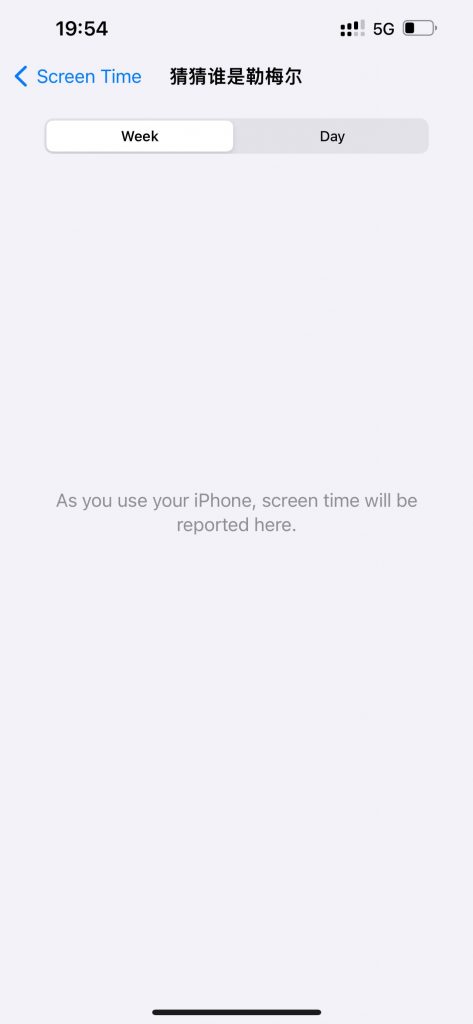
- Xu, 20
Fashion design
Most used social media: Douyin
Average using hour: 8hrs per day
Screen limited time: 6hrs per day
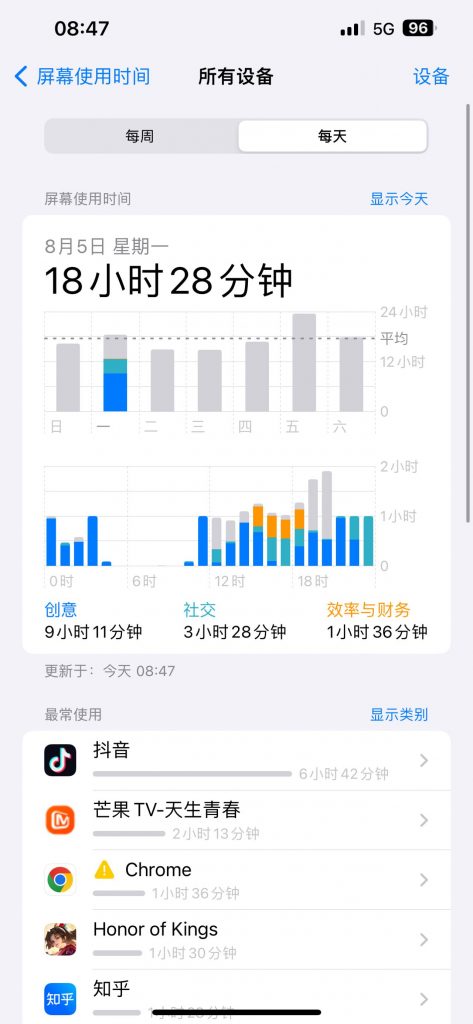
- Yang. Y, 20
Museums study under archaeology
Most used social media: Weibo
Average using hour: 1.5hrs per day
Screen limited time: 40mins per day
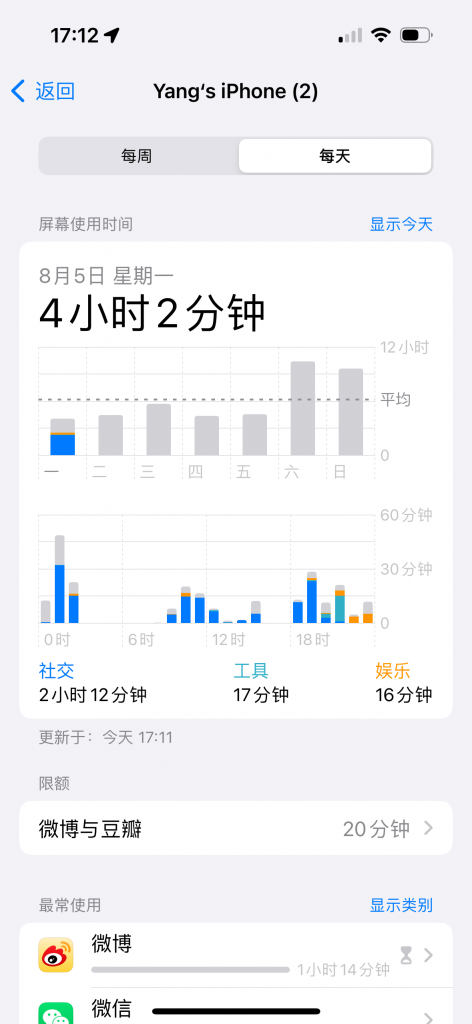
- Yang. Z, 19
Computer science student study at North China Electric Power University
Most used social media: Weibo
Average using hour: 5hrs per day
Screen limited time: 3hrs per day
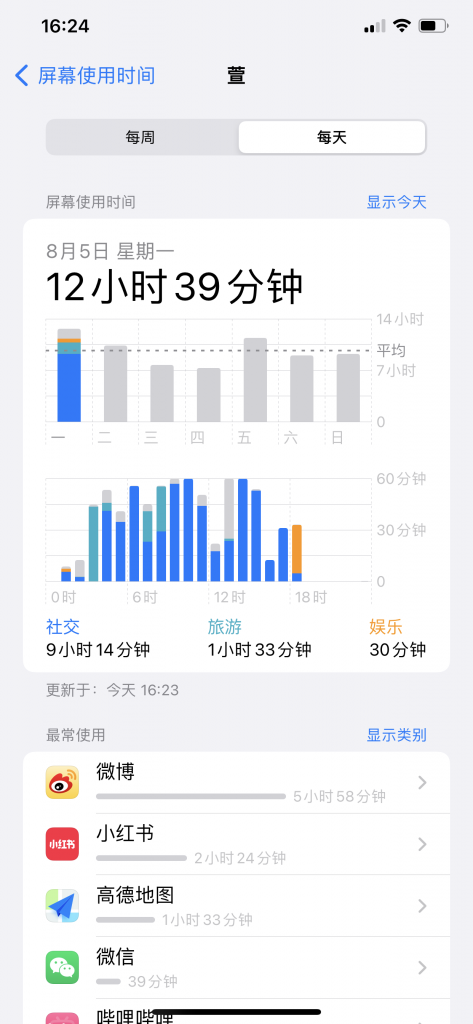
- Li, 20
News and communication student study at University of Southampton
Most used social media: Xiaohongshu
Average using hour: 3hrs per day
Screen limited time: 1.5hrs per day
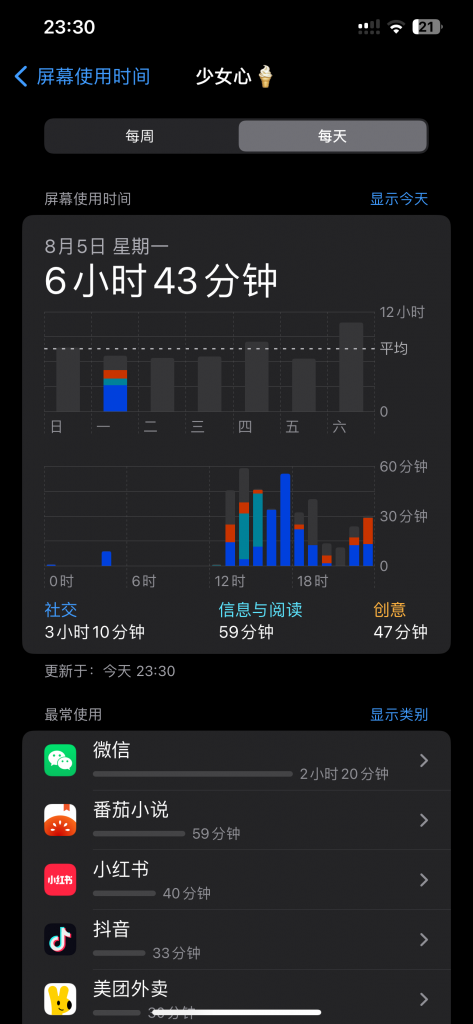
Feedback form
After the tutorial this week, I was reminded that the feedback form is very important for the integrity of the intervention, so I hurriedly edited a copy of the questions and sent it to the 15 people who had participated in the previous workshop.

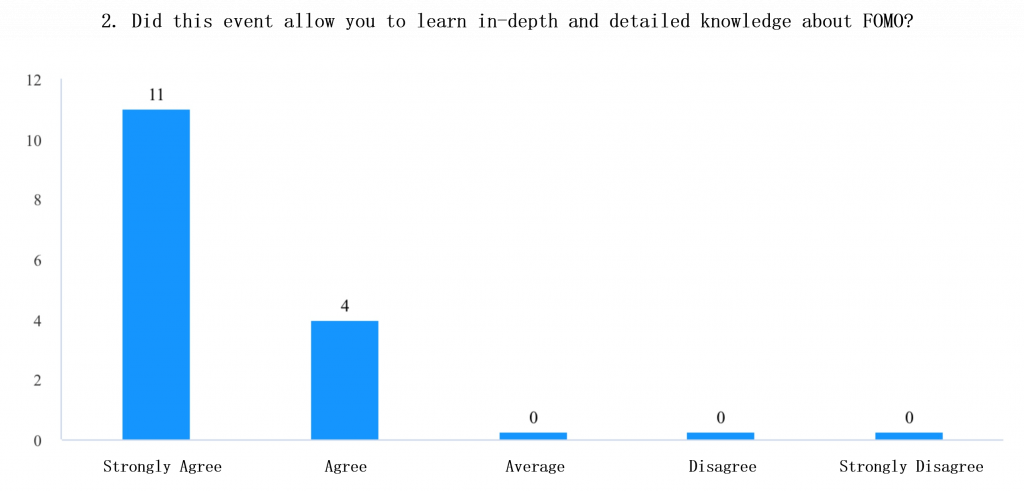
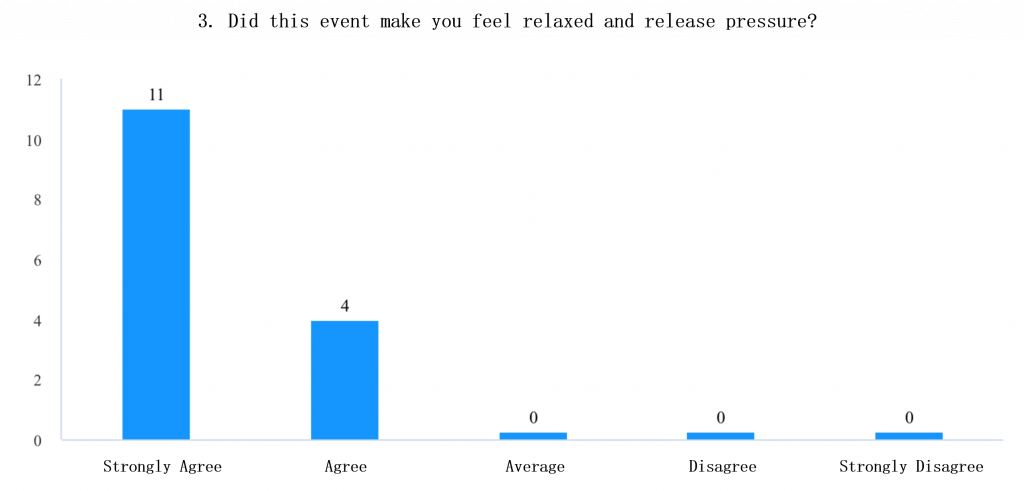
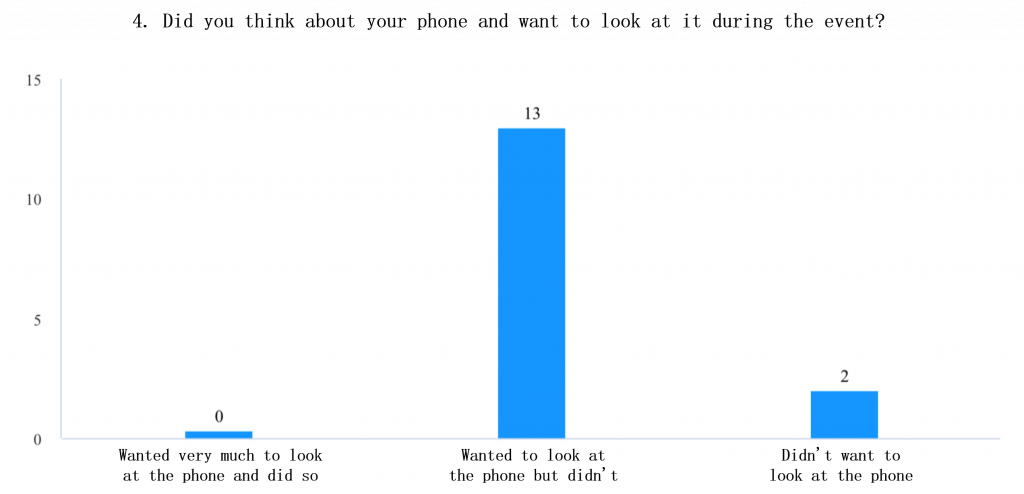
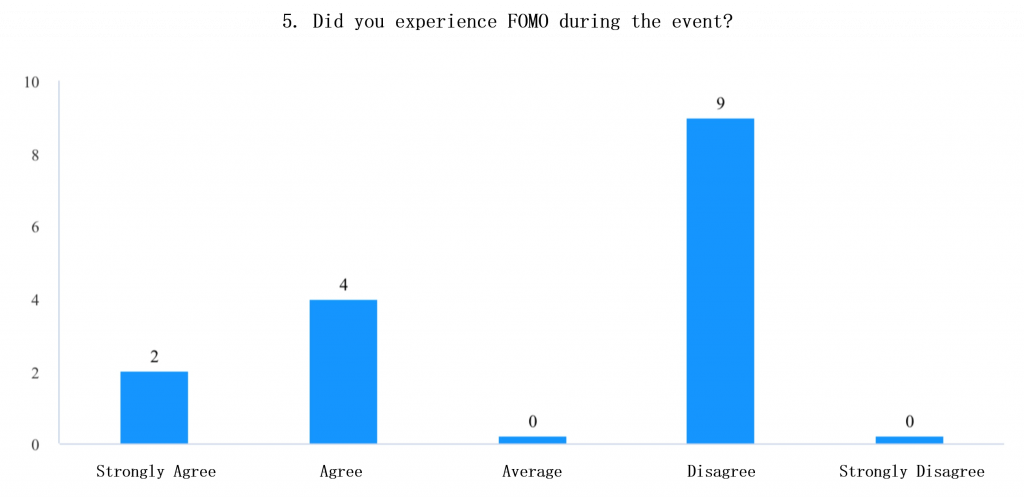
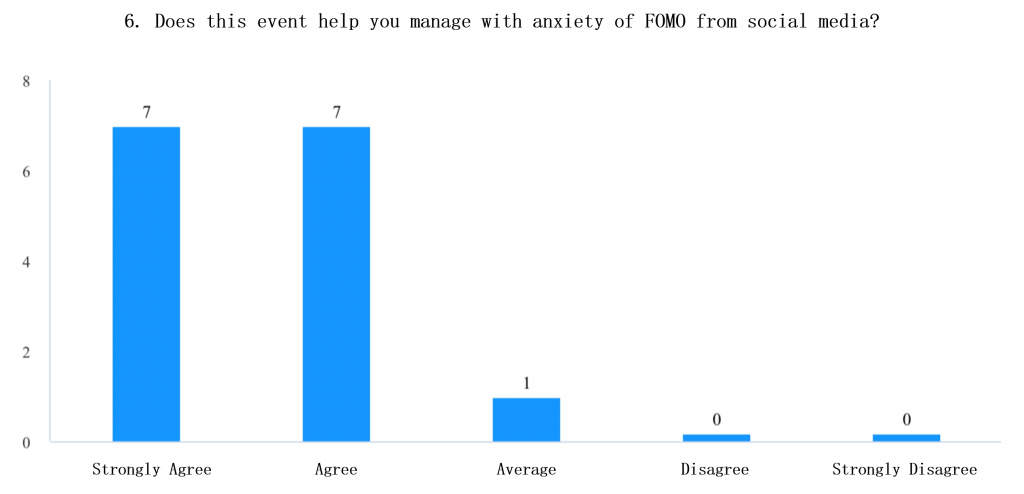
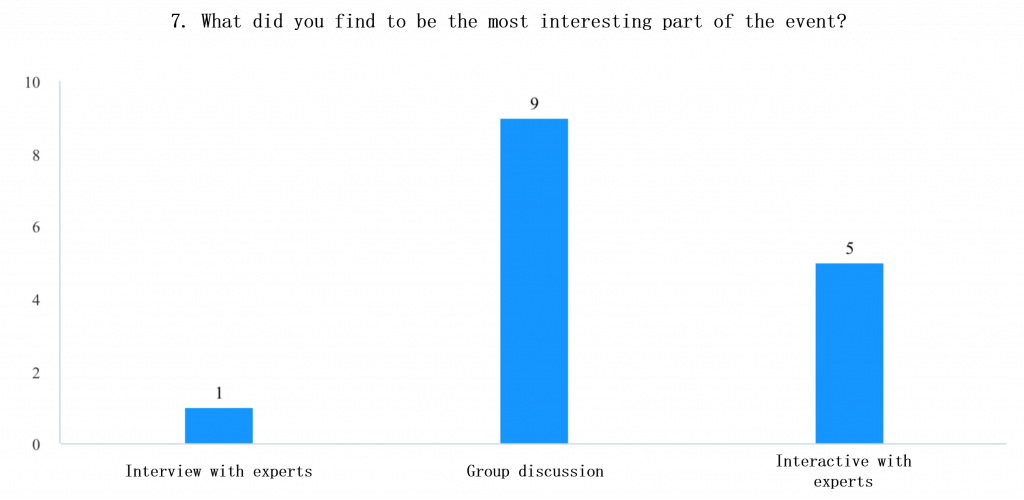
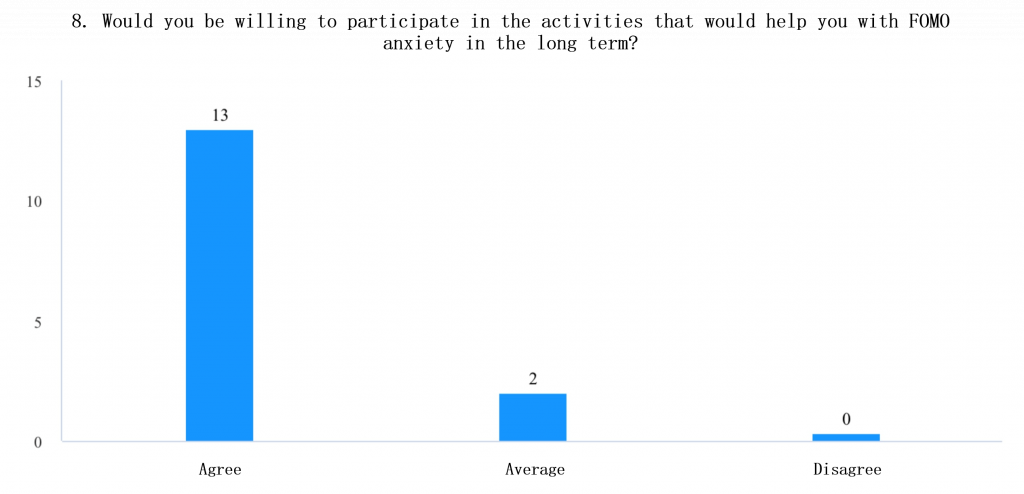
9. What did you get out of this event?
- There are experts who explain how to deal with FOMO
- Learn the knowledge related to FOMO and get rid of part of the dependence on mobile phones to learn new knowledge.
- Learn new knowledge.
- The atmosphere at the event was very good and the presentation was very interesting. After learning about it, I realised that many of my subconscious behaviours were actually psychologically based and could be released.
- I learnt a lot about FOMO and how to solve the problem.
- Get rid of mobile phone in a short time, hope to keep quitting for a long time.
- Understanding the emotions of FOMO deeply.
- Pay more attention to mental health.
- Self-growth.
- Greatly relieved anxiety due to dependence on mobile phones.
- Less anxiety.
- During the discussion, I realised that the FOMO emotion exists in everyone, it is not something to be ashamed of, and only by facing it squarely can it be better addressed. Everyone expressed their own views and gave a lot of useful suggestions, and in the days to come, I will refer to these opinions and gradually adjust my anxiety.
- Knowing that I am not an exception.
- I think this activity has given me the opportunity to communicate more with the outside world and let me know that I am not the only one with this problem. Discussing with people helped me a lot.
- I learnt FOMO specifics and have mitigated FOMO to a certain extent.
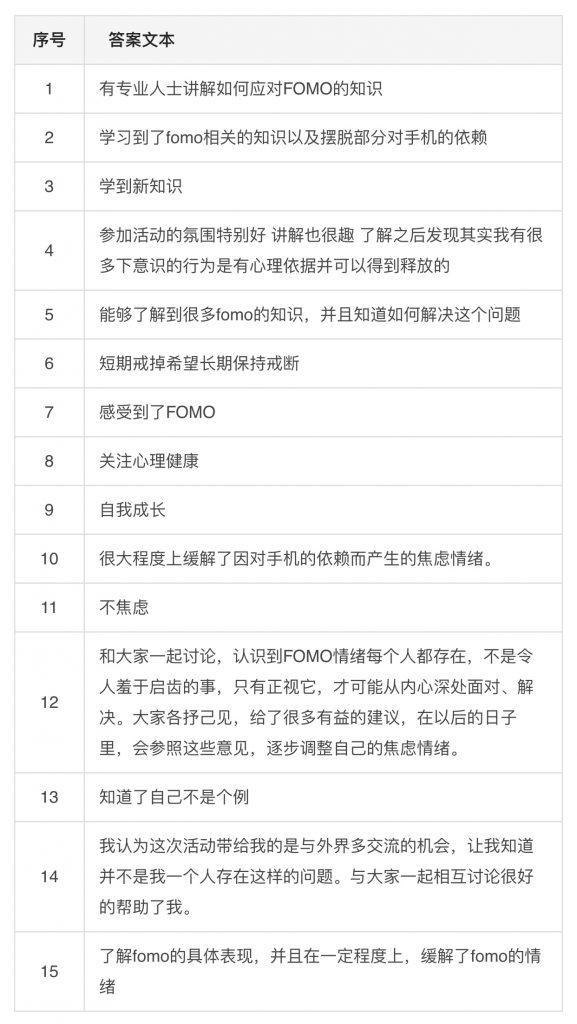
10. What were the challenges or difficulties you encountered in this event?
- I really want to check my mobile phone to see if anyone has sent me a message.
- In the beginning of the event, I wanted to play with my phone unconsciously.
- Can’t play with my phone.
- I’ve relaxed a lot after the event, but I still unconsciously pick up my phone in fragments of time.
- Facing up to the fact that I do have FOMO anxiety that needs to be improved.
- Lack of knowledge.
- Anxiety.
- No problems yet.
- Overcoming habits.
- Difficulty in overcoming mental dependence and anxiety due to too many new messages on mobile phones.
- None.
- Whilst recognising how the FOMO emotions are affecting me, it’s hard to change completely in the short term. Consistency is needed, as well as finding ways to shift anxiety that work for myself, which I think is the most difficult.
- Take the first step towards communication.
- Not looking at my phone.
- Refrain from being affected by FOMO and reduce use of social media.

Through the feedback form the event achieved good results in terms of organisation, knowledge and skills enhancement, and emotional relaxation, with 14 people reporting that the event had helped them cope well with the FOMO-related anxiety brought about by social media. Most of them indicated that through this activity they quickly met many students who had the same experience, and many of them as newly enrolled students felt secure because they had a familiar group. At the same time most participants wanted to look at their mobile phones during the event but did not end up playing, and half of them felt FOMO as a result. This shows that they have a strong habitual or compulsive need to stay in touch, and how to overcome the mental dependence on new information and social media remains a big challenge.